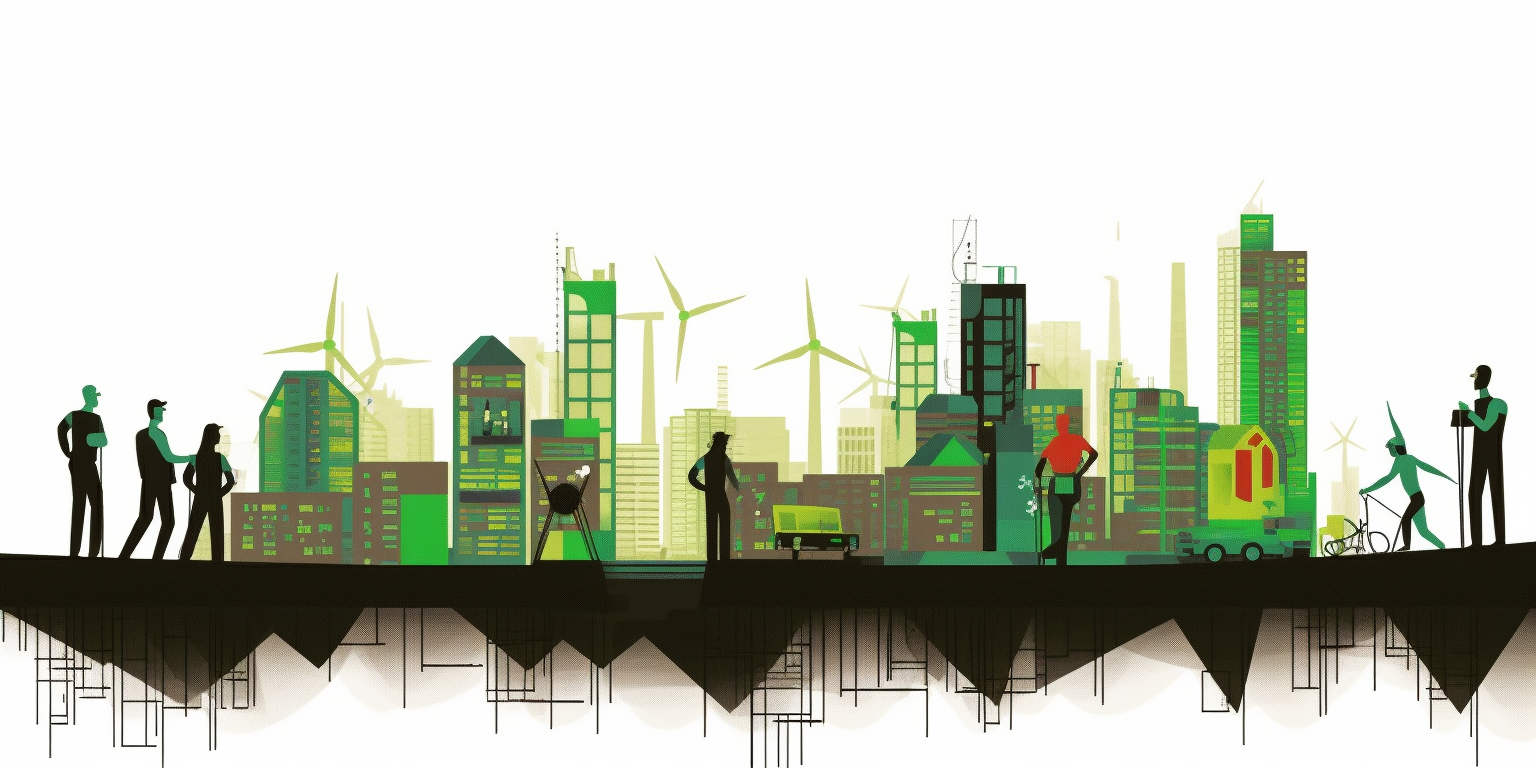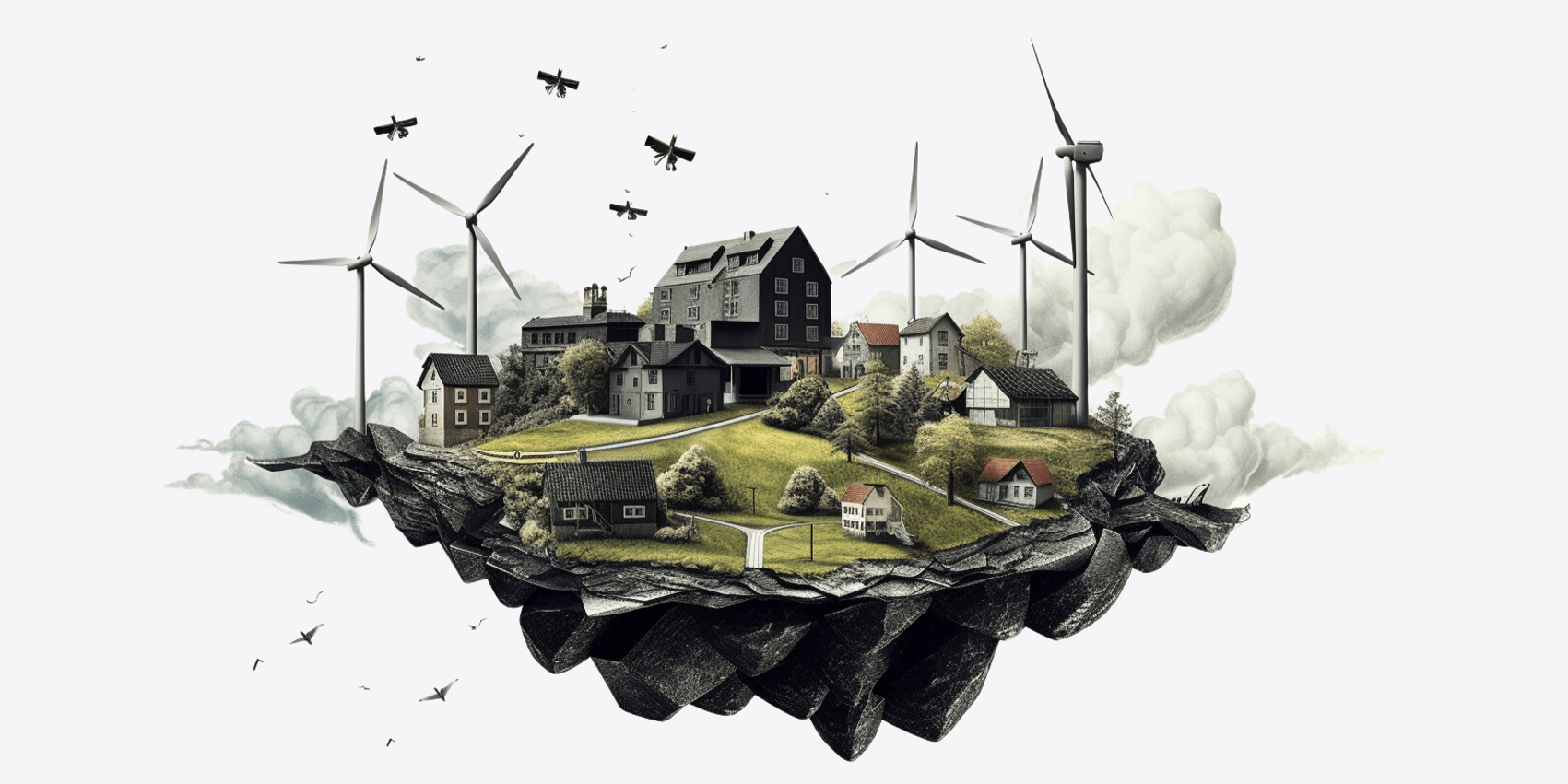
INTELLIGENT ENGINEERING
Mastering the Green Economy: The Essential Skills for a Sustainable Future
As the Green Economy revolution unfolds, the question becomes increasingly important: are companies ready to foster the most crucial skill set for success?

A new report by RenewableUK highlights the potential for a UK-wide green hydrogen economy to generate thousands of highly-skilled jobs nationwide. However, this represents just one aspect of the broader Green Economy model. At its core, this model aligns economic growth with environmental well-being through large-scale measures adopted across the public and private sectors. Benefits are substantial from investments in renewables, resource efficiency and sustainable agriculture, but so are the challenges. A key obstacle is equipping workforces with the skills necessary for emerging opportunities. While small-scale eco-friendly practices like recycling are a starting point, fully realising the Green Economy requires comprehensive transition planning and workforce development. If achieved, this model can harmonise growth and sustainability through a broader transformation of business, industry and government.
According to the Bureau of Labor Statistics (BLS), jobs related to renewable energy are projected to grow faster than average for all occupations from 2020 to 2030. For example, employment in solar photovoltaic (PV) installation is expected to increase by 51%, while employment in wind turbine service technicians is expected to increase by 61%.
The immense job creation potential of renewable energy is highlighted by a 2020 International Renewable Energy Agency (IRENA) report. Their estimates show the sector could employ up to 42 million people globally by 2050, a significant rise from the 11 million jobs in 2018. This quadrupling over just a 30-year period underscores renewables' vast capacity for employment growth in the coming decades. As the energy transition accelerates, the sector's need for skilled workers spanning manufacturing, construction, installation, operations and maintenance will rapidly expand. Policymakers must ensure adequate workforce training and development opportunities are in place to meet surging demand.
The most recent published report from RenewableUK about Onshore Green Hydrogen states that Green Hydrogen production will need to grow one hundred times from today’s levels to meet the government’s 2030 target and mentions the importance of training the relevant stakeholders about the processes involved.

The green economy requires a multifaceted skillset. Technical and soft skills remain essential, but a new category of "Green Skills" is emerging. These directly enable sustainability and decarbonisation roles. Tailored Green Skills development alongside broader technical and interpersonal training will maximise workforce opportunities. A balanced strategy encompassing reskilling and new talent is vital. This holistic approach can equip the UK with the diverse expertise needed to deliver a greener future.
What are they? Those skills are needed to adapt processes, services, and products to climate change and its environmental regulations and requirements. They include the knowledge, abilities, values, and attitudes needed to live in, develop and support a sustainable and resource-efficient society. According to research made by LinkedIn based on job postings, Top in-demand green skills required by employers in 2021 were:
- Sustainable development
- Environmental Remediation
- Occupational Safety and Health Advisor
- Ecosystem Management
- Environmental Auditing
- Renewable energy
- Corporate Social Responsibility
- Solar Energy.
Besides the green skills, other highly valued skills in the Green Economy are shown below:
- Technical skills: as mentioned before, many of the jobs require technical skills related to renewable energy, sustainable agriculture, and eco-friendly technologies. For example, electrical, mechanical, structural and chemical engineers, technicians, and scientists who are well-versed in solar, wind, or geothermal power will be in high demand. Similarly, those with experience in sustainable agriculture, agronomy and soil sciences, crop and livestock nutrition, ultra-low carbon vehicle design, green building design, or waste management will also be sought after.
- Entrepreneurial skills: many of the jobs are in emerging fields and require individuals who can identify new opportunities and take calculated risks. Individuals with entrepreneurial skills such as innovation, creativity, and strategic thinking will be in high demand.
- Analytical skills: Most positions require robust data analysis to develop strategies that maximise sustainability and minimise environmental impacts. This includes assessing ecological footprints, analysing energy usage and devising waste reduction plans.
- Communication skills: Professionals must communicate complex environmental concepts and solutions effectively to diverse stakeholders like policymakers, communities and industry. Simplifying technicalities and providing actionable insight is vital.
- Collaborative skills: Collaboration is essential as sustainability requires coordination across many stakeholders and sectors. The ability to work collectively with diverse groups and organisations is highly valuable.
A multifaceted skillset underpins Green Economy roles. Rigorous analysis informs impact mitigation strategies. Stakeholder engagement necessitates simplifying complex issues. And collaboration enables coordinated sustainability efforts. Workers possessing these well-rounded technical, communication and interpersonal abilities will be integral to realising a green future as this economy continues expanding.
Analia Scarpanto
EPConsult Energies | INTELLIGENT ENGINEERING
More insights:

Hydrogen Challenges and Solutions
Hydrogen, with a history intertwined with the energy sector for over two centuries, is witnessing a remarkable resurgence, particularly as a renewable energy source in the UK's transition from fossil fuels. As the momentum around hydrogen energy grows, so does the question of its safety. While all fuels inherently pose some risks, hydrogen's unique properties, such as a wide range of flammable concentrations and lower ignition energy, necessitate additional engineering controls and careful material selection.

UK's Electric Vehicle Revolution
In a landmark decision that marked the beginning of the UK's Electric Vehicle (EV) Revolution, the UK government announced in November 2020 the cessation of sales of petrol and diesel-fueled vehicles by 2030, and hybrid vehicles by 2035. This unprecedented shift, aimed at significantly reducing the country's carbon footprint, has set the stage for a monumental transition in the transport sector, which accounted for 24% of the UK's total emissions in 2020.

Blowing Away the Carbon
There are several technical and economic reasons that offshore wind power is a viable option for decarbonizing traditional oil and gas production. Firstly, new offshore wind license areas are often located in deeper waters and at greater distances from the coast. Once land is reached, these sites are still far from potential markets. These logistical factors drive up the cost of delivering power to onshore users.

Common Myths About Solar Energy
The myths and misconceptions surrounding solar energy often need to be updated or stem from a lack of understanding of the technology. Solar energy remains efficient in less-than-ideal weather conditions, and while initial costs can be high, the long-term financial benefits are substantial. Furthermore, although the manufacturing process of solar panels does have an environmental impact, the overall effect is far less damaging than traditional energy sources.

From Coal Mines to Clean Energy
The commitment to net zero has impacted all sectors, promoting the need for low-carbon technologies. Around the UK, a vast number of decommissioned facilities are standing disused in previous industrial hubs, and this will only become more common over the coming years as more and more carbon-polluting facilities are closed. More recently, there has been research and investment on how these sites could be used to develop renewable energy sites.
- Log in to post comments
